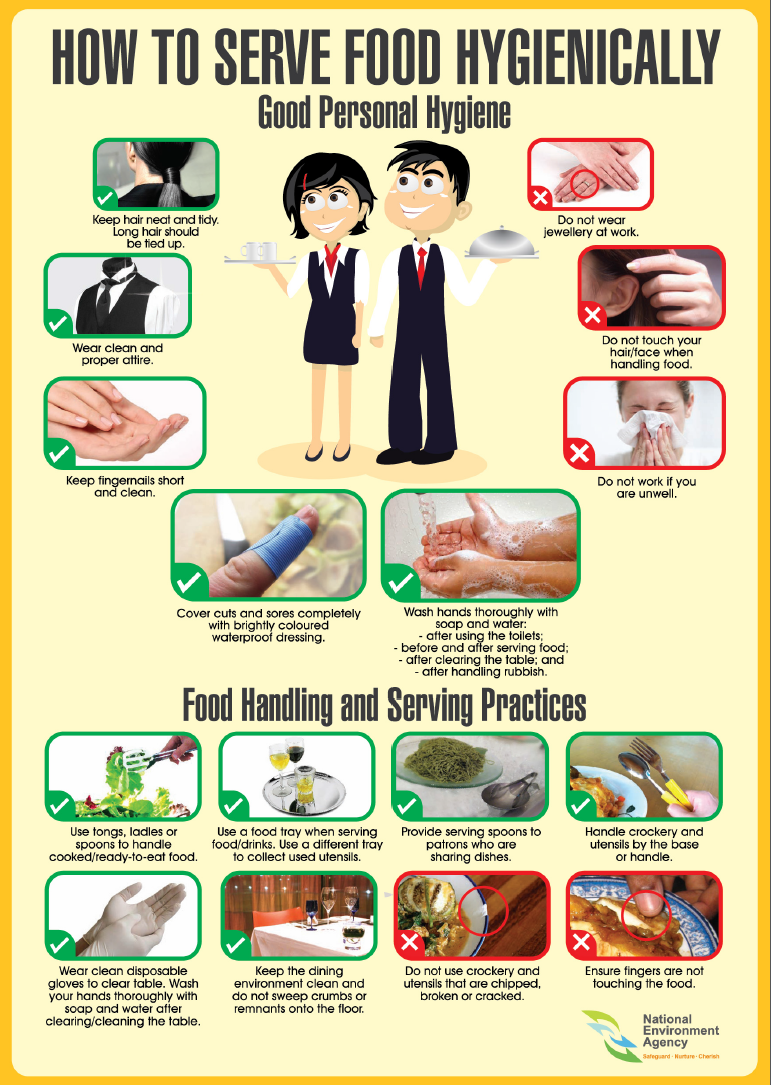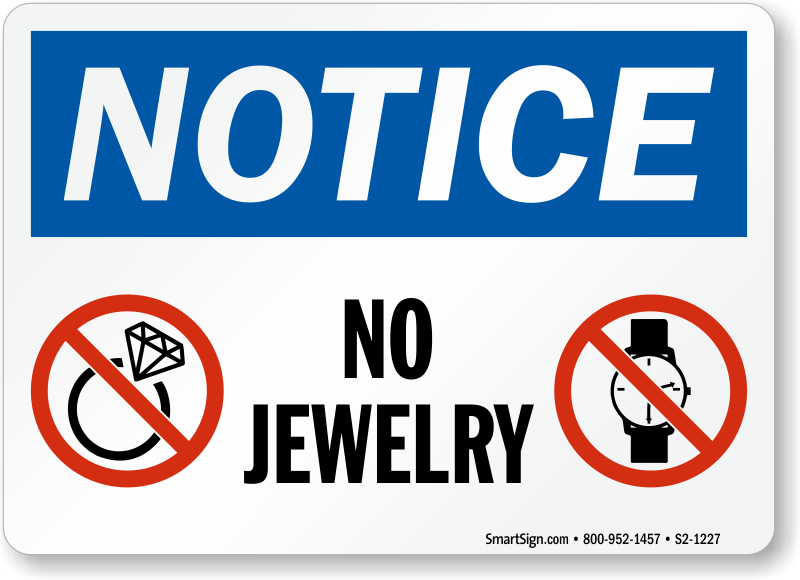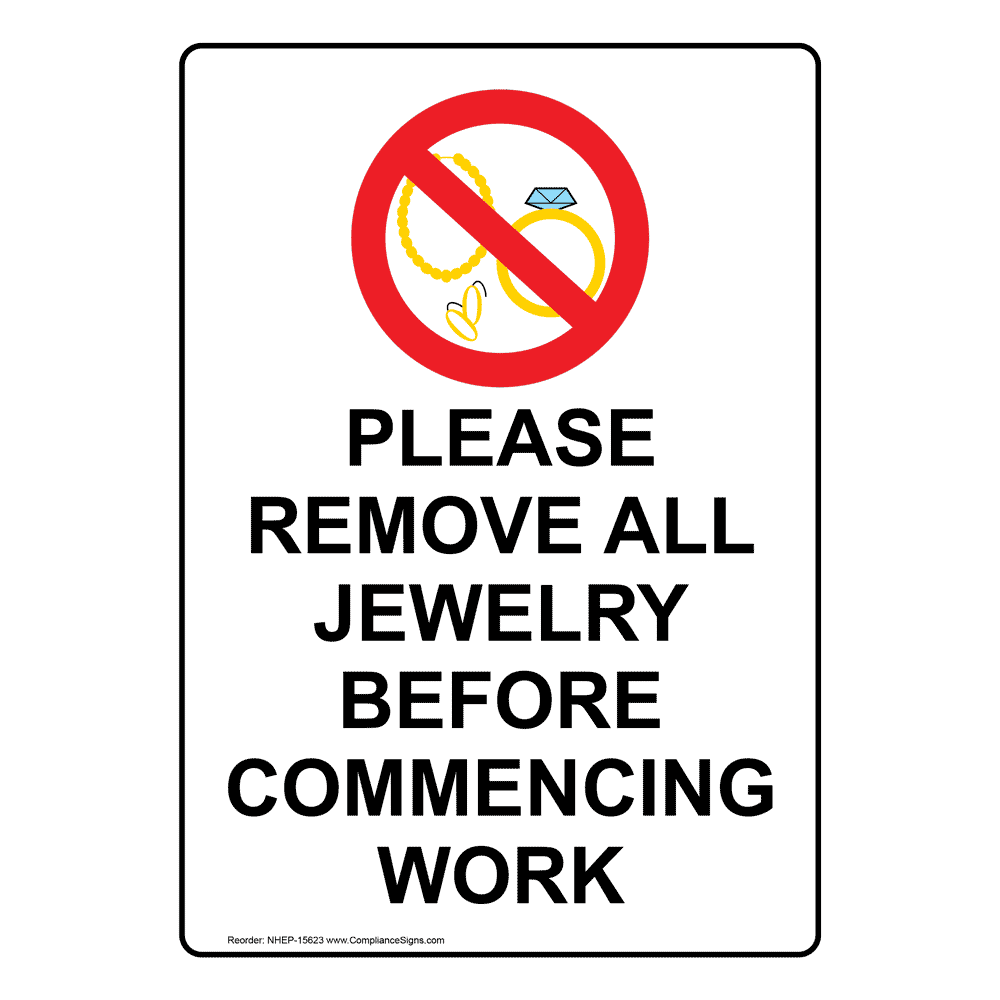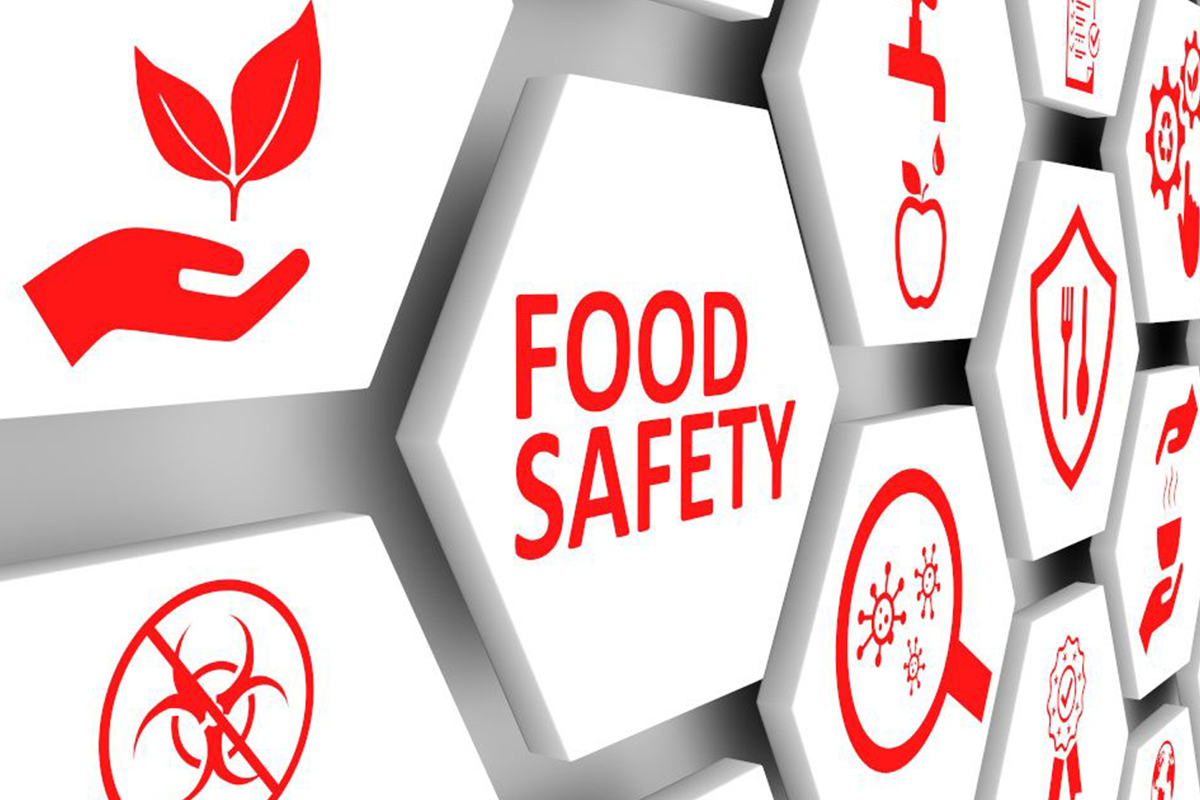Jewelry Policy In The Food Industry: Safeguarding Food Safety And Consumer Health
Jewelry Policy in the Food Industry: Safeguarding Food Safety and Consumer Health
Related Articles: Jewelry Policy in the Food Industry: Safeguarding Food Safety and Consumer Health
Introduction
In this auspicious occasion, we are delighted to delve into the intriguing topic related to Jewelry Policy in the Food Industry: Safeguarding Food Safety and Consumer Health. Let’s weave interesting information and offer fresh perspectives to the readers.
Table of Content
- 1 Related Articles: Jewelry Policy in the Food Industry: Safeguarding Food Safety and Consumer Health
- 2 Introduction
- 3 Jewelry Policy in the Food Industry: Safeguarding Food Safety and Consumer Health
- 3.1 Understanding the Rationale: Why Jewelry Policies Matter
- 3.2 Implementing Effective Jewelry Policies: Key Considerations
- 3.3 FAQs Regarding Jewelry Policies in the Food Industry
- 3.4 Tips for Implementing a Successful Jewelry Policy
- 3.5 Conclusion: The Importance of Jewelry Policies in Food Safety
- 4 Closure
Jewelry Policy in the Food Industry: Safeguarding Food Safety and Consumer Health

The food industry operates within a complex regulatory environment, prioritizing the safety and well-being of consumers. One crucial aspect of this commitment is the implementation of strict jewelry policies. These policies, often mandated by regulatory bodies and enforced by food businesses, play a vital role in minimizing the risk of food contamination and ensuring the integrity of food products.
Understanding the Rationale: Why Jewelry Policies Matter
Jewelry, particularly rings, bracelets, and necklaces, can harbor microorganisms that pose a significant threat to food safety. These microorganisms can originate from various sources, including skin contact, environmental exposure, and even the materials used in jewelry itself. The presence of such contaminants in food can lead to a range of adverse health effects, including foodborne illnesses.
Key Reasons for Jewelry Policies in the Food Industry:
- Preventing Cross-Contamination: Jewelry can act as a vector for transferring microorganisms from surfaces, equipment, and individuals to food products. This cross-contamination can occur during food handling, preparation, and serving.
- Minimizing the Risk of Allergic Reactions: Certain jewelry materials, such as nickel and latex, can trigger allergic reactions in sensitive individuals. By restricting jewelry, food businesses can help prevent accidental contamination of food with allergens.
- Maintaining Hygiene Standards: Jewelry policies promote a culture of hygiene within the food industry. By limiting the presence of jewelry, businesses encourage employees to maintain high standards of personal cleanliness, which is essential for food safety.
- Enhancing Consumer Confidence: Consumers expect food businesses to prioritize their health and safety. Strict jewelry policies demonstrate a commitment to maintaining high hygiene standards and instill confidence in the quality and safety of the food products.
- Compliance with Regulations: Food safety regulations often mandate specific jewelry restrictions for food handlers. Compliance with these regulations is crucial for businesses to avoid legal penalties and maintain their operating licenses.
Implementing Effective Jewelry Policies: Key Considerations
Implementing a robust jewelry policy requires careful consideration of various factors to ensure effectiveness and compliance.
Elements of a Comprehensive Jewelry Policy:
- Clear and Concise Policy: The policy should be written in clear and concise language, outlining the specific jewelry restrictions and the rationale behind them.
- Scope of Application: The policy should clearly define the individuals to whom it applies, including all employees, contractors, and visitors working in food handling areas.
- Jewelry Restrictions: The policy should specify the types of jewelry that are prohibited or restricted, including rings, bracelets, necklaces, earrings, and body piercings.
- Exceptions: While jewelry is generally discouraged, certain exceptions may be allowed, such as plain wedding bands. These exceptions should be clearly stated and justified.
- Alternative Solutions: The policy should provide alternatives to jewelry, such as hair nets, beard nets, and gloves, to ensure personal hygiene and prevent food contamination.
- Enforcement Procedures: The policy should outline the consequences of violating the jewelry restrictions, including disciplinary actions and potential termination of employment.
- Training and Education: Employees should receive comprehensive training on the importance of the jewelry policy, its rationale, and the proper procedures for adhering to it.
- Regular Monitoring and Audits: Food businesses should regularly monitor compliance with the jewelry policy and conduct periodic audits to ensure its effectiveness.
FAQs Regarding Jewelry Policies in the Food Industry
1. What types of jewelry are typically prohibited in food handling areas?
Generally, all jewelry, including rings, bracelets, necklaces, earrings, and body piercings, is prohibited in food handling areas. However, some exceptions may be allowed, such as plain wedding bands.
2. Why are plain wedding bands sometimes allowed?
Plain wedding bands are sometimes allowed because they are generally considered less likely to harbor microorganisms or pose a risk of cross-contamination. However, even plain wedding bands should be kept clean and maintained regularly.
3. What are the consequences of violating a jewelry policy?
Consequences for violating a jewelry policy can range from verbal warnings to disciplinary actions, including suspension or termination of employment. The specific consequences will depend on the severity of the violation and the company’s policies.
4. How can I ensure that my jewelry policy is effective?
To ensure an effective jewelry policy, it is crucial to:
- Communicate clearly: Explain the policy’s rationale and importance to employees.
- Provide training: Offer comprehensive training on the policy and its implementation.
- Monitor compliance: Regularly monitor employees’ adherence to the policy.
- Enforce consistently: Apply the policy fairly and consistently to all employees.
5. What are some best practices for managing jewelry policies?
- Develop a written policy: Create a clear and concise policy document.
- Train employees thoroughly: Ensure employees understand the policy and its importance.
- Provide alternatives: Offer alternatives to jewelry, such as hair nets and gloves.
- Monitor compliance regularly: Conduct periodic audits to ensure adherence to the policy.
- Review and update the policy: Regularly review and update the policy as needed.
Tips for Implementing a Successful Jewelry Policy
- Involve Employees in Policy Development: Encourage employee input during the policy development process to foster buy-in and ensure the policy is practical and understandable.
- Offer Alternatives: Provide readily available alternatives to jewelry, such as hair nets, beard nets, and gloves, to minimize inconvenience and ensure compliance.
- Emphasize the Importance of Personal Hygiene: Encourage employees to practice good personal hygiene, including handwashing, to minimize the risk of food contamination.
- Provide Clear and Consistent Communication: Regularly communicate the policy’s importance, its rationale, and the consequences of non-compliance.
- Implement a Fair Enforcement System: Ensure that the policy is enforced fairly and consistently across all employees, regardless of their position or seniority.
Conclusion: The Importance of Jewelry Policies in Food Safety
Jewelry policies are an integral part of safeguarding food safety and consumer health. By implementing effective jewelry policies, food businesses demonstrate a commitment to hygiene, minimize the risk of food contamination, and instill confidence in their products. The importance of these policies cannot be overstated, as they play a crucial role in protecting consumers from potential foodborne illnesses and ensuring the integrity of the food supply chain. Continued adherence to these policies is essential for maintaining the highest standards of food safety and protecting public health.






.JPG)

Closure
Thus, we hope this article has provided valuable insights into Jewelry Policy in the Food Industry: Safeguarding Food Safety and Consumer Health. We appreciate your attention to our article. See you in our next article!